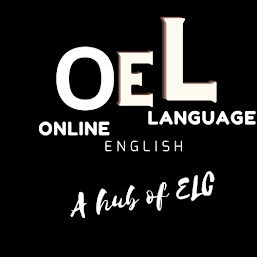What is Education assessment?
Education assessment plays a pivotal role in shaping the learning experience for students and ensuring the effectiveness of educational programs. As a senior copywriter and SEO expert, I understand the significance of high-quality content and its impact on search rankings. In this comprehensive article, we will explore the concept of education assessment, its importance, and the key elements necessary for conducting effective evaluations. With a focus on detail and accuracy, this article aims to provide valuable insights that can contribute to achieving a high rank on Google's search results. To reinforce the purpose of this article, let's begin by highlighting the importance of educational assessment in today's dynamic educational landscape.
Education Assessment: Unveiling the Key Elements of Effective Evaluation
Understanding Education Assessment
Education assessment refers to the systematic process of collecting, analyzing, and interpreting data to evaluate students' knowledge, skills, and abilities. It encompasses a wide range of methods, techniques, and tools used to measure educational outcomes, identify strengths and weaknesses, and guide instructional decision-making. The primary objective of education assessment is to enhance learning experiences, improve teaching strategies, and promote overall educational development.
The Significance of Education Assessment
Education assessment plays a vital role in several aspects of the educational system:
1. Informing Instructional Practices
Effective assessment practices provide valuable feedback to educators, enabling them to tailor their instructional methods to better meet students' needs. By identifying areas of improvement and understanding individual learning styles, teachers can adapt their teaching strategies to maximize student engagement and achievement.
2. Promoting Student Growth
The assessment offers students opportunities for self-reflection, self-assessment, and goal setting. It encourages them to take ownership of their learning and actively participate in the educational process. By receiving constructive feedback and understanding their progress, students can set realistic goals and work towards continuous improvement.
3. Ensuring Accountability
Education assessment plays a crucial role in maintaining accountability within educational institutions. It allows educators, administrators, and policymakers to assess the effectiveness of curricula, programs, and policies. By measuring learning outcomes and evaluating the overall quality of education, assessment helps identify areas for improvement and promotes transparency and accountability.
4. Guiding Policy Decisions
Accurate and reliable assessment data provide policymakers with valuable insights into the strengths and weaknesses of the education system. This information assists in making informed decisions regarding resource allocation, curriculum development, and educational reforms. It ensures that policies are evidence-based and designed to improve educational outcomes.
Critical Elements of Effective Education Assessment
To achieve meaningful and reliable results, practical education assessment requires careful planning, implementation, and analysis. Let's explore the key elements that contribute to successful evaluations:
1. Clearly Defined Learning Outcomes
Before conducting any assessment, it is essential to establish clear and measurable learning outcomes. These outcomes should align with the educational goals and objectives of the curriculum. Well-defined learning outcomes provide a foundation for designing appropriate assessment tasks and criteria.
2. Diverse Assessment Methods
Utilizing a variety of assessment methods ensures a comprehensive evaluation of student's knowledge and skills. These methods may include written exams, practical demonstrations, projects, presentations, and portfolios. By employing diverse assessment strategies, educators can capture a holistic understanding of students' capabilities and provide a more accurate representation of their learning achievements.
3. Authentic Assessment Tasks
Authentic assessment tasks mirror real-world situations and allow students to apply their knowledge and skills in meaningful contexts. These tasks assess higher-order thinking, problem-solving abilities, and the integration of knowledge across disciplines. By incorporating authentic assessment, educators can evaluate students' readiness to face real-life challenges and foster skills that are essential for their future success.
4. Clear Assessment Criteria
Establishing transparent assessment criteria is crucial for ensuring objectivity and consistency in evaluations. Clear criteria provide students with a clear understanding of what is expected of them and how their work will be assessed. Well-defined criteria also enable educators to provide constructive feedback and make fair judgments about students' performance.
5. Ongoing Formative Assessment
Formative assessment refers to the continuous evaluation of student progress throughout the learning process. It involves providing timely feedback, identifying areas for improvement, and adjusting instruction accordingly. Ongoing formative assessment helps students track their growth, encourages self-reflection, and enables educators to address individual learning needs promptly.
6. Reliable and Valid Assessment Tools
Reliability and validity are essential qualities of any assessment tool. Reliable assessments yield consistent results over time, while valid assessments measure what they intend to measure. Educators should use well-established and validated assessment instruments to ensure the accuracy and credibility of the evaluation process.
Conclusion
Education assessment plays a fundamental role in shaping educational experiences, promoting student growth, and ensuring accountability within the education system. In this article, we have explored the significance of education assessment and identified key elements that contribute to effective evaluations. By adhering to well-defined learning outcomes, employing diverse assessment methods, utilizing authentic tasks, establishing clear criteria, implementing ongoing formative assessment, and using reliable assessment tools, educators can conduct evaluations that foster student development and support educational excellence. Remember, the success of education assessment lies in its ability to provide valuable insights, inform instructional practices, and drive positive educational outcomes.


.png)
0 Comments